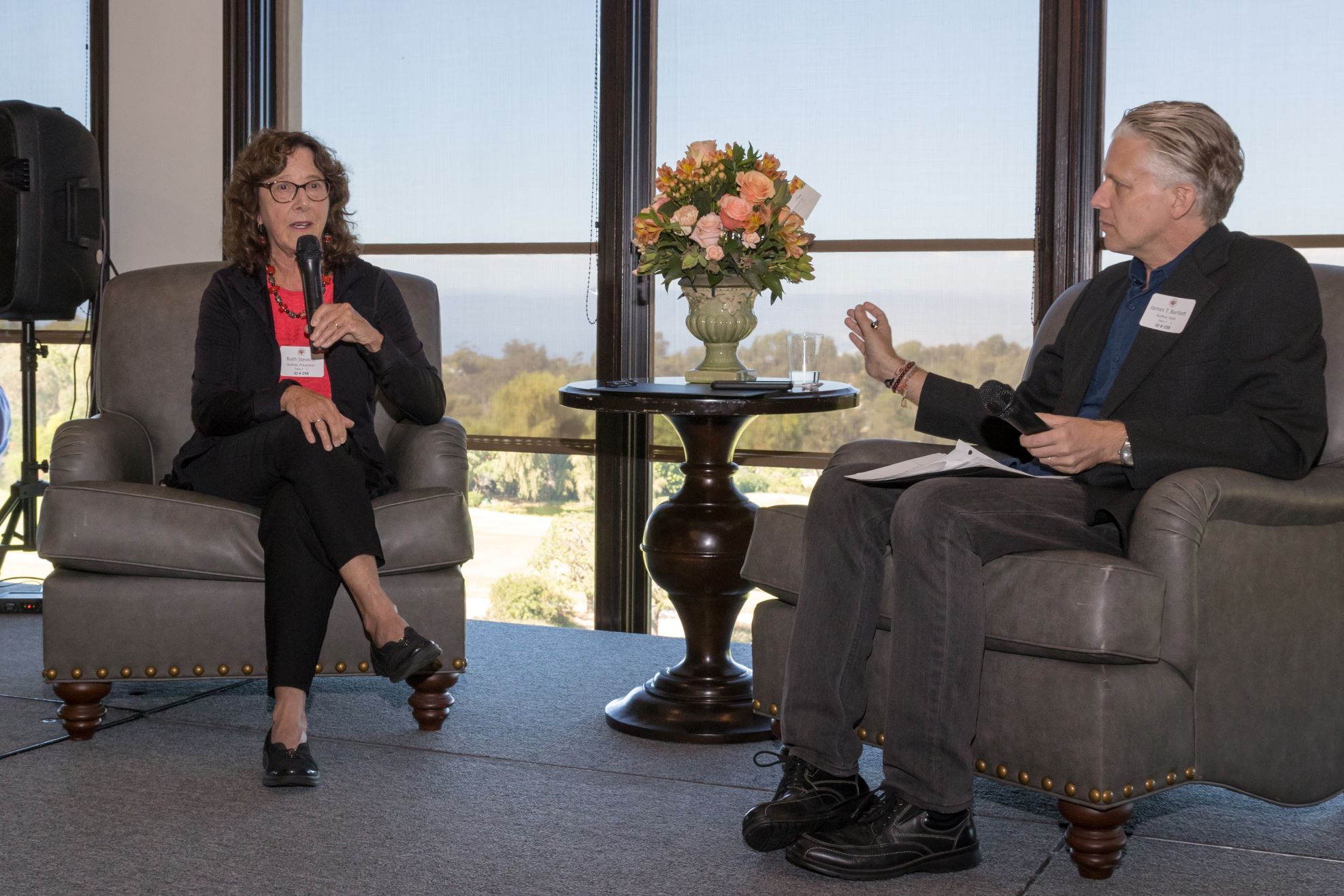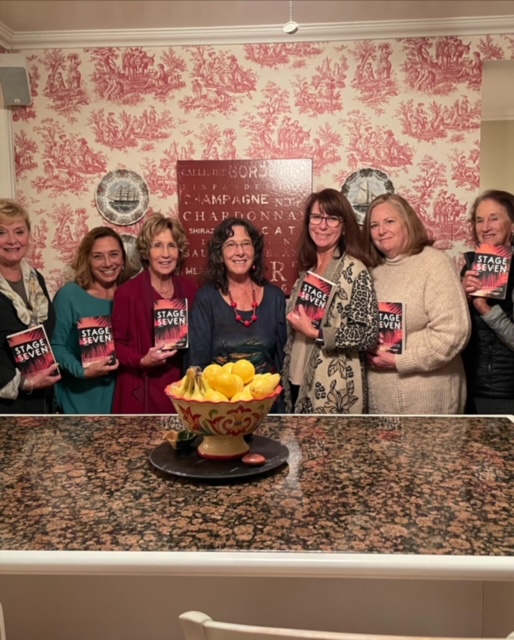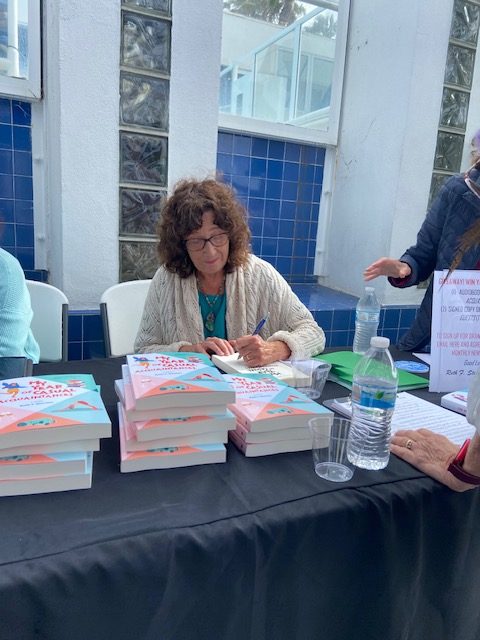Book Clubs
BOOK CLUBS AND EVENTS

There’s nothing I love more than meeting with book clubs and connecting with readers!
I’ve done many book club appearances, interviews, and speaker events since becoming a published author and would be happy to meet with your group via Zoom (anywhere) or in person (Los Angeles area). Interested? You can reach me any time using the Contact form on this website.


Book Club Discussion Questions
My Year of Casual Acquaintances Questions
Stage Seven Questions
The Unexpected Guests Questions
My Year of Casual Acquaintances Questions
- At the end of the first chapter, Mar says, “Much better, much safer, to keep others at arm’s length, free of the yoke of any suffocating connections.” It’s understandable that she might not be ready for new love, but why do you think she is so determined to avoid all emotional involvement?
- Each month of the year, Mar takes up with a different “acquaintance.” Of the twelve acquaintances in the novel, who were your favorites? Why? Who do you think were Mar’s favorites?
- Many of the scenes in the novel take place at Mar’s health club, Seaside Fitness. Why did the author choose a gym as the main setting for this story?
- Mar is a skilled editor and writer, but she’s the first to admit that her own verbal gaffes often get her into trouble. What do these gaffes reveal about her character? Can you think of times in the book when this happens?
- Reflecting on her divorce, Mar comments that “couples want to be friends with other couples, not with an abandoned wife.” Do you know anyone who has grappled with this problem after a divorce or separation? What advice would you offer Mar to get through this painful transition?
- Why is Mar’s relationship with her son Michael so strained? Who do you feel is to blame for this—Michael, Mar herself, or ex-husband Henry?
- Because Charlie is a writer, Mar connects with him in a way she never connected with her husband. Do you think Charlie and Mar are compatible? Why or why not?
- Mar’s job as an engineering journal editor is not glamorous or high paying, but it’s very important to her. What does she get from her job that is missing from the rest of her life?
- In an ironic reference early in the book, Mar informs readers that “reading fiction seems a bit like a waste of time to me.” What does this tell us about her character? How does her attitude about fiction shift in the course of the story—and why is this significant?
- How does Mar change and grow during the year? What is the turning point in the plot that propels her to change course?
Stage Seven Questions
- Have you had personal experience supporting friends or family members with Alzheimer’s disease or other dementia? What, if anything, did you learn about the disease from this book that you didn’t previously know?
- Stage Seven is largely a story about love. What are the different forms of love depicted in the novel? Which of the characters are most transformed by love in the course of the story?
- Barbara and Vicky are sisters with very different personality types. Did you relate more to either one of these two characters? Are you more of a Barbara or a Vicky, and how so?
- When siblings jointly care for a parent with dementia or another health problem, they may disagree on important decisions, but one source of conflict is the burden of care, which is often unevenly distributed. How did you feel about the way these issues are addressed in Stage Seven? Did anything in particular strike you as unfair, or is there anything you feel you would have handled differently had you been involved?
- How are Sarah and Scott affected by their grandmothers’ Alzheimer’s diagnoses? How are they impacted by the affair between Barbara and Jack? What other role do these two younger characters play in the story?
- Why do you think Barbara feels guilty about her affair with Jack? Do you think that Jack experiences guilt as well? Do you think that he should? Why or why not? How did you feel about their involvement?
- At the start of the book, Barbara has been divorced for fifteen years from an unfaithful husband. How has that experience shaped her general outlook on life? How does it impact her relationship with Jack?
- Jack says, “When you’ve met one person with Alzheimer’s, you’ve met one person with Alzheimer’s.” How is this theory reflected in the characters of Dolly and Helen, the two dementia patients in the story? How are they similar, and how are they different?
- Barbara’s story takes place in the present, mostly following her life over the course of a single summer. But Jack and Helen Winokur’s story jumps around in time, revealing different periods of their relationship in nonsequential order. What overall effect does this nonlinear style of storytelling have on the book as a whole?
- “We knew they’d get worse,” Jack says to Barbara, referring to the inevitability of Dolly’s and Helen’s respective declines. Though there is no cure for Alzheimer’s, does the book offer a message of hope and comfort? In what way?
The Unexpected Guests Questions
- Which characters do you think are the unexpected guests in the story? Also, other “unexpected guests” who are neither human nor canine appear in the novel. How would you describe these symbolic “guests”?
- Charlie, Gwendolyn, and Sunny are very different kinds of people, but similarities exist among their intertwining stories. In what ways do the three characters resemble one another? Did you have a favorite?
- Who—or what—does Charlie believe is the cause of his writer’s block? What do you think is the true root cause?
- Through much of the book, as the three narrators are forced into closeness while living at Charlie’s, tensions mount to the breaking point. Finally, at the Fourth of July party, everything unravels. Who or what is responsible for this development? How does it affect the other characters as well as the three narrators?
- After the disastrous party, the three narrators depart to separate destinations, where each one eventually experiences an epiphany or moment of self-discovery. What do you see as Charlie’s epiphany, and when does it occur? Same question for Gwendolyn and Sunny.
- Do you think Margaret also makes important discoveries about herself in the course of the book? How do these discoveries impact her relationships with the three narrators?
- Were you surprised by the revelation about Gwendolyn that comes near the end of the story? Why or why not? Did this change how you felt about her? If so, how?
- Were you surprised by the information Sunny uncovered about her past? How do you think this knowledge will affect the future course of her life?
- Sunny says to Margaret, “I’m not stupid or lazy or completely lacking in talent… but no matter how hard I try to turn things around, I can’t seem to catch a break.” In what way do the revelations about Sunny’s past offer insight to her character as we know her through most of the book? As she learns more about herself, how do you think this knowledge will change her and the future course of her life?
- Each of the main characters completes a journey of sorts by the conclusion of the story. Did Charlie’s, Gwendolyn’s, and Sunny’s endings plausibly complete their arcs as characters? If so, how? If not, why not?
- Were there any particular issues in the novel that resonated with you on a personal level? What parts of the story elicited the strongest emotional reaction from you?
Additional questions for those also read the prequel, My Year of Casual Acquaintances:
- My Year of Casual Acquaintances is narrated entirely in first-person by Margaret (“Mar”) Meyer. But the sequel, The Unexpected Guests, is written in third-person POV with three rotating narrators: Charlie, Sunny, and Gwendolyn. We’re never inside Margaret’s head in the second book, but she is still a major character. What role does Margaret play in the sequel?
- Do you feel Margaret has changed since the first book? Why or why not? Same question about Charlie.
- Apart from the switch from first-person to third-person narrative, what do you see as the main differences between the two books? In what ways did you find them similar?

